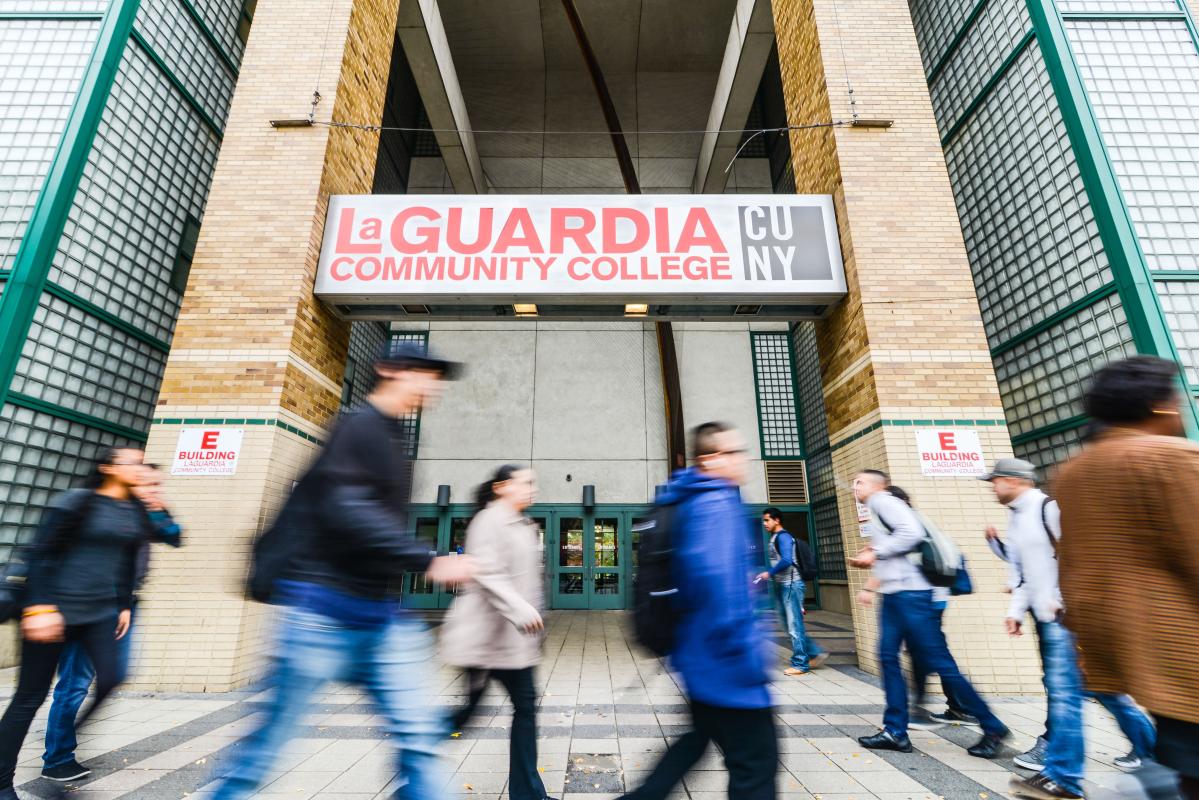
LaGuardia Community College in Queens, N.Y., is creating an Office of Credit for Prior Learning, a first for the college and for the City University of New York system. The office is dedicated to giving working adults, especially those returning to college, credits for work experience and accomplishments outside the classroom that will help them earn degrees in less time.
The new office will oversee a re-enrollment campaign encouraging any former college student in New York City to enroll at LaGuardia. The returning students will start off with credits given for their previous work experiences. Under this Credits for Success Initiative, students who previously attended a CUNY institution to which they owe money will not have to repay those debts. The debts will instead be paid off by the LaGuardia Community College Foundation. The office will be funded by a $1 million grant from the Robin Hood Foundation, an organization committed to tackling poverty in New York City.
Determining how to award credits for a wide variety of life and work experiences—from military service to self-taught IT work—is a “case-by-case, labor-intensive process, and it takes an office,” said Kenneth Adams, president of LaGuardia Community College. “Our belief at LaGuardia was, to do this right, we need a dedicated team of experts to facilitate the awarding of credit for prior learning for these students and get them into a smooth onboarding process, a smooth return to college.”
The CUNY Board of Trustees created a systemwide policy in 2020 to streamline awarding credits for prior learning across campuses, and that move jump-started LaGuardia’s work on this issue.
Becky Klein-Collins, vice president for research and impact at the Council for Adult and Experiential Learning, said offering credits for prior learning sends a “really powerful message” to adults that they already have valuable knowledge to contribute to the classroom.
“What you’re doing is you’re validating them as learners,” she said. “A lot of adults, they’ve been told all their lives, ‘You know, you’re not college material, so you should take this different path.’ Or maybe they’ve had a bad experience in their previous academic journeys and have come to that conclusion on their own in some way or internalized that kind of criticism of themselves.”
In contrast, giving credits for work outside college tells adults, “You have been learning lots of things in your work and life experiences, all of the things that have brought you to where you are today. You’ve not just been a stagnant person,” and those lessons and skills count.
Klein-Collins said the positive messaging and awarding of life credits attracts students. A 2022 research brief from CAEL and the Strada Education Network found that 84 percent of adults who described themselves as likely to enroll in college said that options to earn credit for life experiences would have a strong influence on their choice of college. Another report, by the council and the Western Interstate Commission for Higher Education, found that adult learners who received credits for prior learning were more likely to complete college than similar students without the credits.
Adams believes granting the credits is especially relevant in New York City. Nearly 700,000 New Yorkers attended some college but never earned a degree, and they make up more than 14 percent of all city residents between the ages of 25 and 64, according to a 2021 report from the Center for an Urban Future, a research organization focused on economic mobility the city.
“This initiative will enable us to reach out to student populations who heretofore may not have considered coming to LaGuardia or back to college at all,” Paul Arcario, provost at LaGuardia, said in a press release.
Adams said he feels a sense of obligation as a CUNY community college leader “to find ways to enable those people to get back on an educational pathway.”
“The New York City economy can be a pretty unforgiving place if you only have a high school diploma,” he said. “We really need those New Yorkers to increase their skills … get a degree, for their economic well-being, for rising incomes and for economic growth.”
LaGuardia, like community colleges nationwide, serves students who were especially hard-hit by the COVID-19 pandemic, and the university suffered enrollment losses as a result. About 30 percent of LaGuardia students are over age 25, and most tend to come from lower-income neighborhoods in Queens, such as Elmhurst, Jackson Heights and Corona, that had high rates of infection and job loss during the pandemic. Enrollment at LaGuardia dropped to 12,714 in spring 2021, from 14,313 in spring 2020, a loss of over 2,000 students. The hope is to bring those students back while creating a broader pathway for all New Yorkers to return to college via LaGuardia.
As a part of the re-enrollment initiative, the college is also partnering with local community-based organizations—such as nonprofits that train people for jobs in construction and health care, organizations that run coding boot camps, and military bases—to ensure potential students know they can obtain college credits for the training they received through those programs.
The program participants will be able “to connect to a valuable resource, assessment for college credit, which can potentially accelerate a student’s trajectory towards the critical metric of time to college completion or transfer,” Sunil Gupta, LaGuardia’s vice president for adult and continuing education, said in the release. “We will proactively be reaching out to community-based organizations to take an inventory of their workforce training programs in order to codify where degree credit can be awarded.”
Adams hopes that other CUNY campuses follow suit and create offices dedicated to assigning credits for prior learning.
“These ingredients are basic, and any college can do this,” he said. “And I hope that the LaGuardia initiative may serve as a model.”
from Inside Higher Ed | News https://ift.tt/qcrtnGD


No comments:
Post a Comment